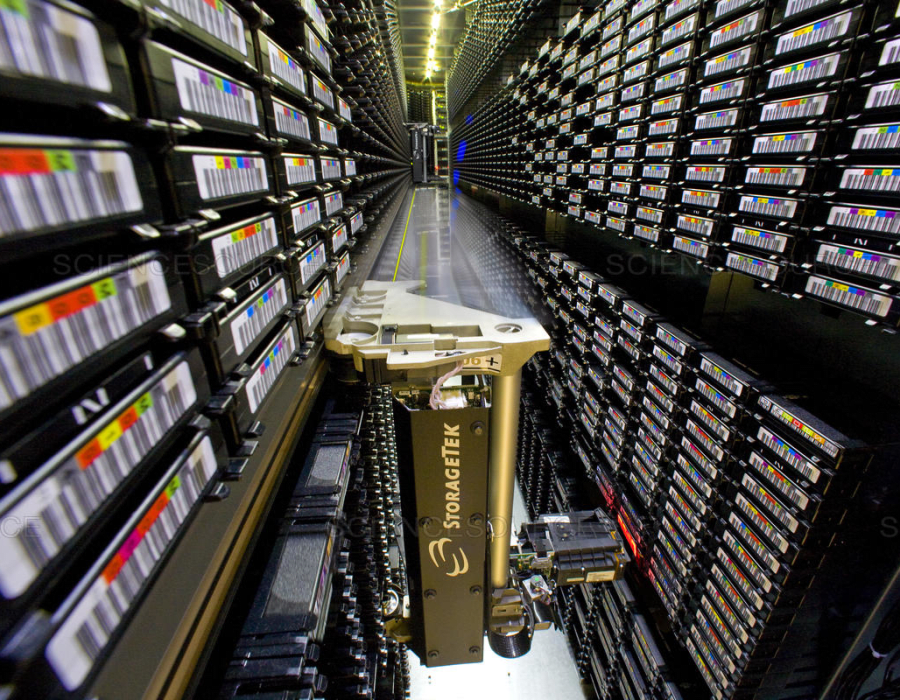Some may consider it a surprise that even though disk storage is very popular, the amount of information saved on tape is still increasing. Tape is often considered an older method of storage, so what can account for this? A review of the pros and cons of tape storage versus disk storage may help shed some light on this topic.
Better Data Writing
Everybody is looking for accuracy these days. When it comes to writing bits to storage the last thing you want to see is an unrecoverable bit error. This happens when a device incorrectly stores a one instead of a zero or a zero instead of a one. You will get this error when this is not fixed with error correction. A lot of people don't understand that tape, though it is an older form of storage, has a very good bit error rate. Some even say that its bit error rate is better than any other recording medium.
Longevity and Integrity
Tape is very good at holding onto data. This may be the most misunderstood fact about tape storage. The term "blocking energy" represents what prevents a magnetic bit from moving its position over time. All magnetic bits are subject to degradation overtime. Compared to disk, tape drives have larger magnetic particles and are stored at an ambient temperature so they have much higher blocking energy. The higher blocking energy makes it so that tape can hold onto data for a long period of time. Generally, it is recommended not to store a piece of data for longer than five years on disk drive. That same piece of data however, can be stored on tape for as long as 30 years.
Speed Challenges
The biggest problem with tape has to do with speed. It cannot keep pace with most backups. It is too fast. The standard compressed transfer rate for tape storage technology is 750 MB per second, that is the ideal speed for tape. That creates a problem though because most backups are incremental and they only provide a few megabytes per second. This is not compatible with tape.
Storage Costs Compared
In general tape is often cheaper than disk. The cost effectiveness of tape is the main reason why it is still popular. If you take the cost per gigabyte, even with all the improvements in deduplication, tape still winds up to be cheaper than disk. To maintain disk, it costs money. Even if disk was free, it would still cost money. Why? Because disk needs to be cooled and it needs to be powered. The expenses associated with maintaining the data using disk exceed the costs associated with using tape.
Where Is the Tape?
If tape is so reliable and cheap, who is using it? Tape is still commonly used to store large quantities of reference data by many types of organizations. This data usually needs to be held in a reliable location for long periods of time, which makes tape an ideal solution. The storage also has to be as cheap as possible. Tape is very reliable and even though it is considered out of date it still serves a very important role.





